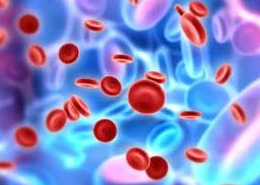Elotuzumab (Empliciti), a new immune-stimulating therapy to treat multiple myeloma has been approved

Last Updated on December 2, 2015 by Joseph Gut – thasso
December 02, 2015 – The American Food and Drug Administration (FDA) just granted approval for Elotuzumab (Empliciti) in combination with two other therapies to treat people with multiple myeloma who have received one to three prior medications. Elotuzumab (Empliciti) is a monoclonal antibody against SLAMF7 that activates the body’s immune system to attack and kill multiple myeloma cells. It is approved in combination with another FDA-approved treatment for multiple myeloma called Lenalidomide (Revlimid) and Dexamethasone (a type of a Corticosteroid). Elotuzumab (Empliciti) is the second monoclonal antibody only approved to treat patients with

multiple myeloma. Daratumumab (Darzalex) against CD38 is the second approved monoclonal immune-stimulating antibody for the treatment of patients with multiple myeloma; it was just approved by the FDA earlier this month; Thasso Post had a report on the fact.
The efficacy of Elotuzumab (Empliciti) was tested in a randomized, open-label clinical study of 646 participants whose multiple myeloma came back after, or did not respond to previous treatment. Those taking Elotuzumab (Empliciti) in combination with Lenalidomide (Revlimid) and Dexamethasone experienced a delay in the amount of time before their disease worsened (19.4 months) compared to participants taking a combination of Lenalidomide (Revlimid) and Dexamethasone (14.9 months) only.. Additionally, 78.5 percent of those taking Elotuzumab (Empliciti) with Lenalidomide (Revlimid) and Dexamethasone saw a complete or partial shrinkage of their tumors compared to 65.5 percent in those patients taking the combination of Lenalidomide (Revlimid) and Dexamethasone only.
There are adverse effects also. The most common adverse effects of Elotuzumab (Empliciti) are fatigue, diarrhea, fever (pyrexia), constipation, cough, nerve damage resulting in weakness or numbness in the hands and feet (peripheral neuropathy), infection of the nose and throat (nasopharyngitis), upper respiratory tract infection, decreased appetite and pneumonia.
Of course, in multiple myeloma, any additional treatment option is highly welcomed. Multiple myeloma is a form of blood cancer that occurs in infection-fighting plasma cells (a type of white blood cell) found in the bone marrow. These cancerous cells multiply, produce an abnormal protein and push out other healthy blood cells from the bone marrow. This disease may result in a weakened immune system, and cause serious bone and kidney problems. The National Cancer Institute (NCI) estimates there will be 26,850 new cases of multiple myeloma and 11,240 related deaths in the United States this year. No wonder then that both patients and treating physicians are looking forward to using the new treatment option in the fight against multiple myeloma. It is expected that Elotuzumab (Empliciti) will be available in other part of the world soon.
See also some comments on both of the two novel therapies for multiple myeloma:


Announced on January 29, 2016, the European Medicines Agency (EMA) has recommended granting a marketing authorisation for Empliciti (elotuzumab) for the treatment of multiple myeloma. It is to be used in combination with lenalidomide and the anti-inflammatory medicine dexamethasone for the treatment of patients who have received at least one prior therapy.
As usual in such cases, the opinion adopted by the Committee for Orphan Medicinal Products (COMP) at its January 2016 meeting is an intermediary step on Empliciti’s path to patient access. The CHMP opinion will now be sent to the European Commission for the adoption of a decision on an EU-wide marketing authorisation. Once a marketing authorisation has been granted, decisions about price and reimbursement will take place at the level of each Member State, taking into account the potential role/use of this medicine in the context of the national health system of that country.